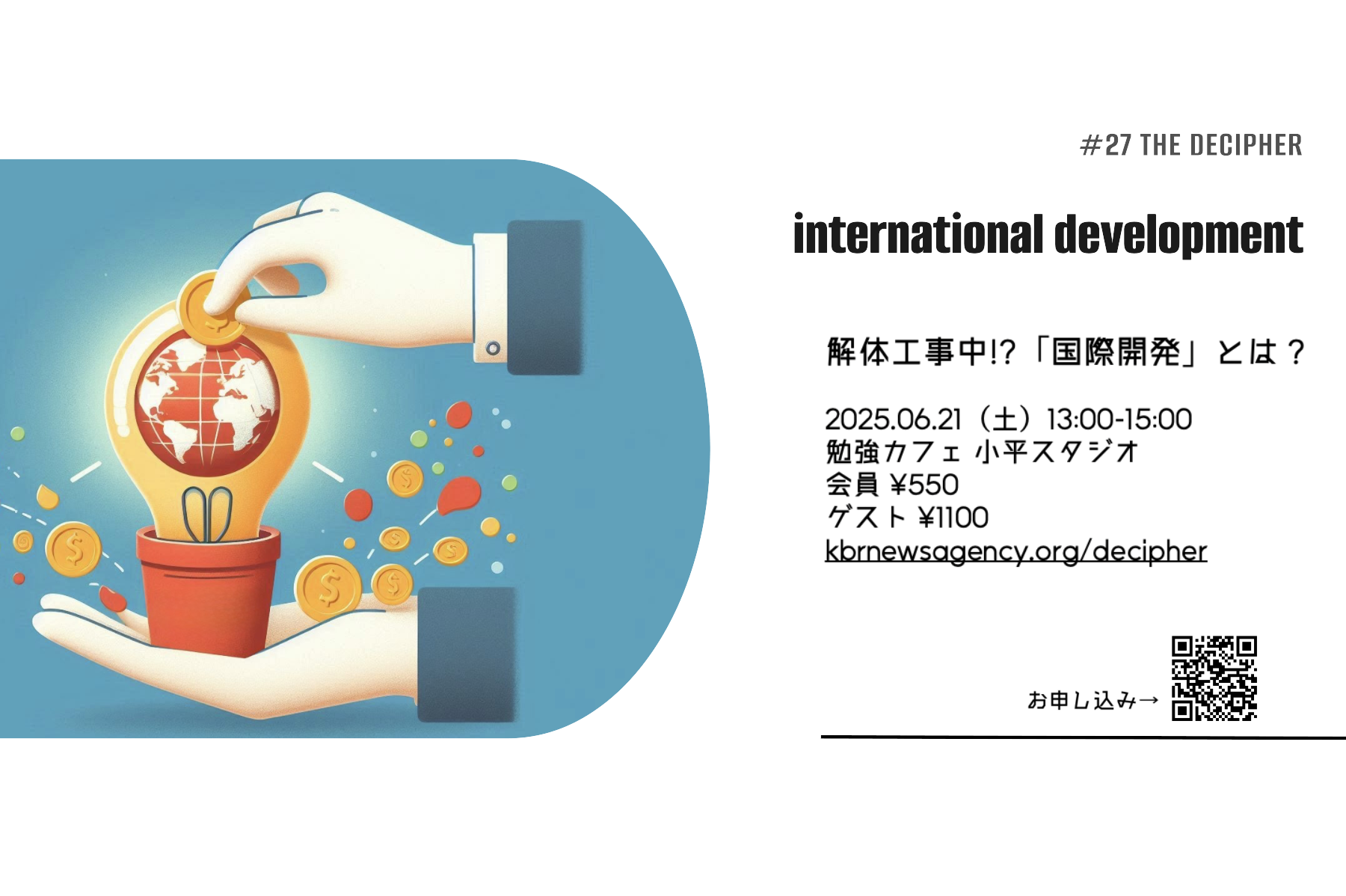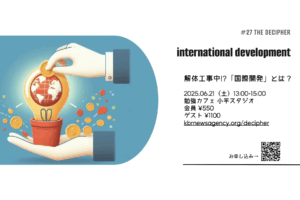国際開発でも古い秩序が解体されているようです。生まれつつある新たな秩序とは……?

【今回の記事】
Aid cannot make poor countries rich. March 8, 2025. The Economsit
【内容】
- 要約の仕方
- 要約を意識した読み方
- サマリーの発表
- 英語クイズ
今回は「英語で要約すること」を意識しながら記事を読んでみました。
その目的は…
・要約力の向上
・読解力のレベルアップ(The Economistの主張をより正確に理解すること)
The Decipherでは要約の方法を独自にアレンジしました。5つのポイントがあります。
Summarizing: KBRNA style
・オーディエンスが誰かを考える(Know the audience)
・論点を取り出してギュッと凝縮——著者の主張に耳を傾けながら(Shrink the core without starving the soul)
・できるだけ面白く(Turn dry into wry)
・話すように書く(Make it speakable)
・ユーモアやパンチの効いた言葉で締める(Close with a wink or a hook)
この方法の意図は、要約の作業とサマリーを読むことが楽しくなるようにすること😁。
そんな感じで今回の記事を要約してみました。下記は例です。
The Economist argues that development cannot make poorest countries rich. It points out that growth of recipient countries slowed remarkably between 2014 and 2024. This is largely because aid organizations do not really know how to grow economies of recipient countries. They have demanded economic reforms that are impossible for recipient countries to enact, only to make them depend more on aid to survive (while being exploited by wealthy countries). This is why the old system of development failed. What is the new model? The Economist says that “aid is about to be weaponised” with donors putting their strategic interests first. That prospect does not look reassuring for poorest countries.
これまでの国際開発は貧しい国々を豊かにできなかった、というのがThe Economistの論点。その失敗の主な原因は、国際開発の組織や政治家が被援助国の経済を成長させる方法をわかっていなかったこと。彼らが経済改革を要求しても、被援助国は実行に移せず、食べていくために援助にもっと依存してしまい、先進国やそのグローバル企業に搾取されてしまう。そんな従属構造ができた。国際開発の新モデルは、支援国の戦略的利益を重視する「支援国ファースト」になりそうだと同紙は述べていますが、先の展望は混沌としているようです。
英語クイズ
問題例:
- What does the phrase “move the needle on growth” mean? (Can aid be said to have “moved the needle” on economic growth?)
- What is a “paper trail“ in the context of development aid? (Why is it important to have a paper trail when giving aid?)
残りの問題と解答例はメールで配信中。


